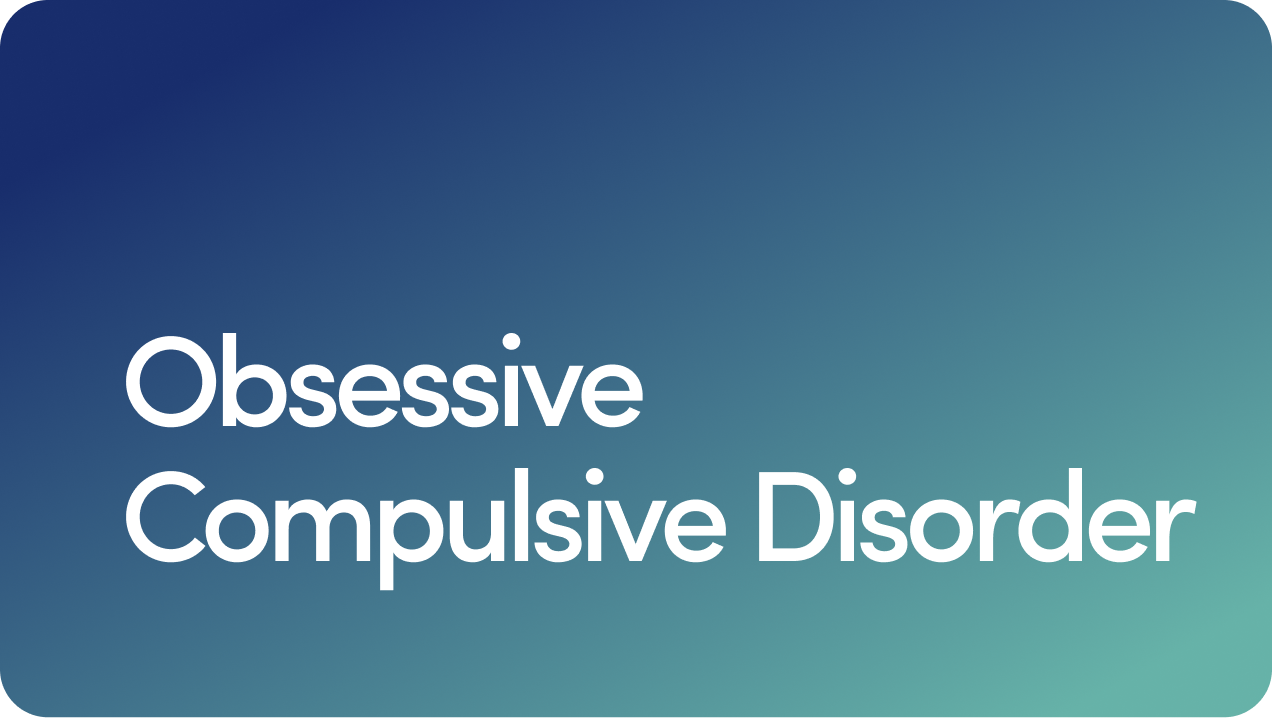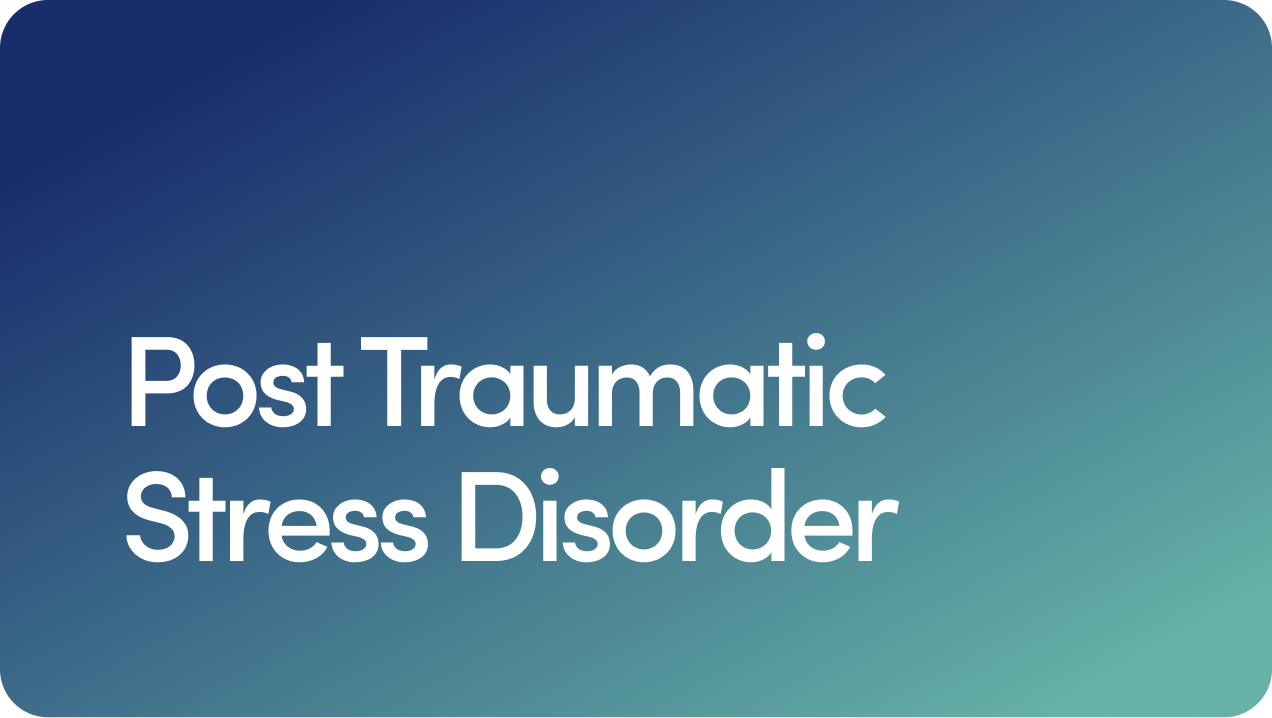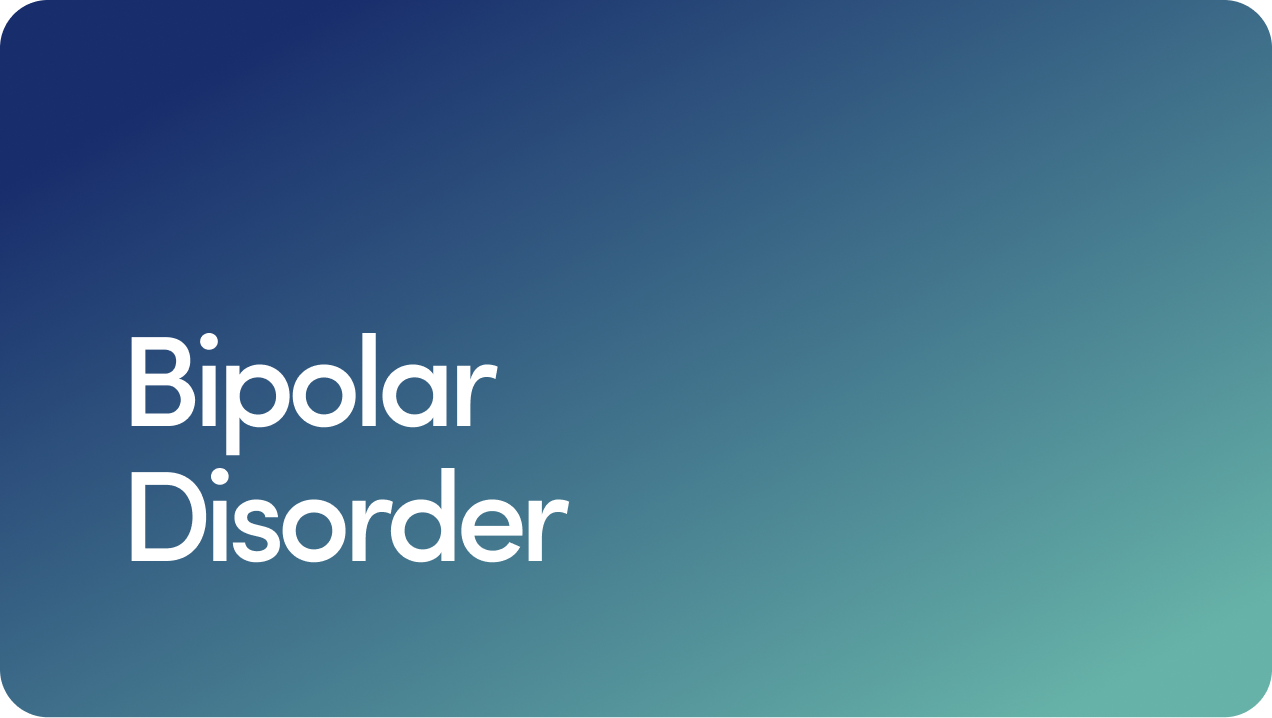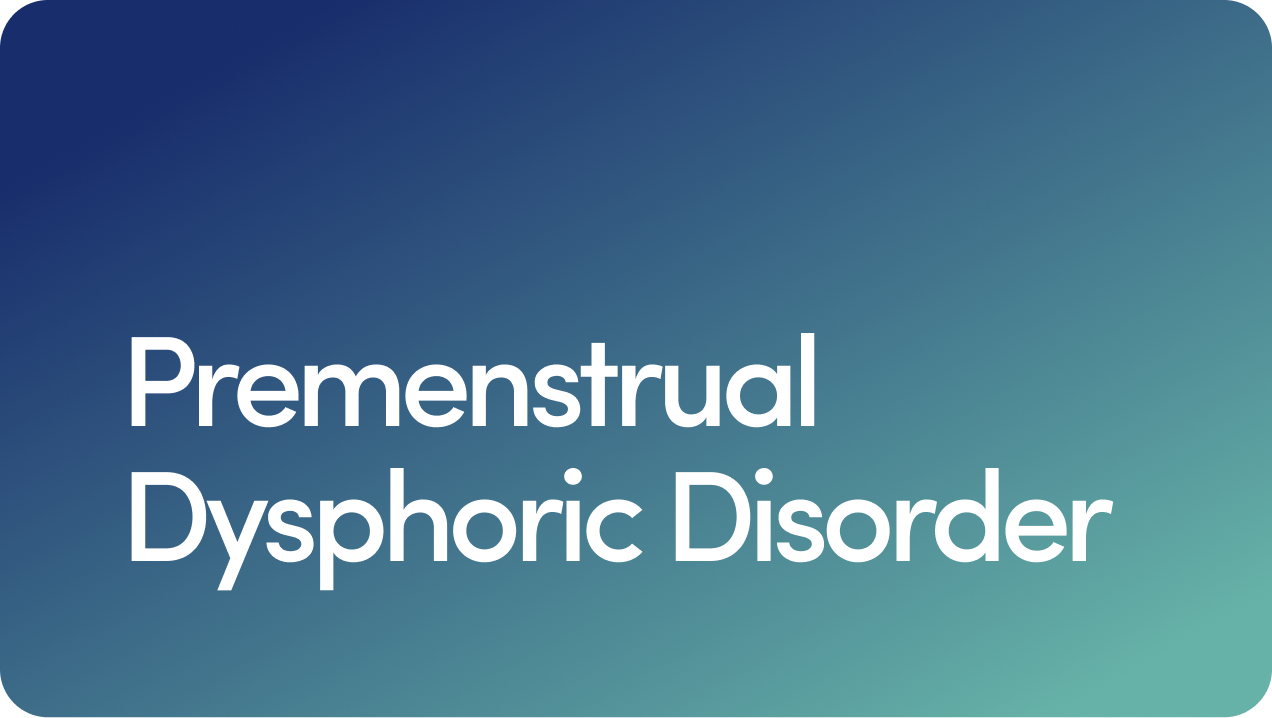Content
Free Mental Health Assessment
Lexapro For PMDD: What Are The Benefits?

Reviewed by Daniel Z. Lieberman, MD
Written by Hadley Mendelsohn
Published 10/25/2022
Updated 09/11/2024
Premenstrual dysphoric disorder, or PMDD, is a frustrating mental health condition. Fortunately, effective treatment options are out there, including antidepressants like Lexapro®.
If you’ve been diagnosed with this mood disorder or you’ve been struggling to manage it, a healthcare provider might have suggested Lexapro for PMDD.
Managing PMDD is like treating any other mental health condition. It may take time to see results, it might call for a combination of treatments, and it could take more than one try to find the right combo for your needs.
If you’re curious to learn more about Lexapro and how it might treat PMDD, you’re in the right place. We’ll break down the basics of PMDD, explain how Lexapro works, and explore other treatment options.
Let’s start with the essentials.
Content
How Lexapro Treats PMDD
Premenstrual dysphoric disorder is a relatively new diagnostic term and mood disorder. The simplest way to understand it is as a specific name for the most severe premenstrual symptoms — or premenstrual syndrome (PMS).
PMDD is essentially a collection of physical symptoms, depressive symptoms, and anxiety symptoms interlinked with the menstrual cycle.
The symptoms of PMDD can be physical, emotional, or psychological. For a diagnosis, you’ll typically have several of the following symptoms:
Depressed mood
Hopelessness
Anxiety
Irritability
Decreased interest in activities
Difficulty concentrating
Fatigue
Changes in appetite (like intense food cravings)
Sleep issues
Feeling overwhelmed or out of control
Breast tenderness or swelling
Headaches
Bloating
Weight gain
Joint or muscle pain
With PMDD, these symptoms are generally strong enough to interfere with your ability to function in professional and social settings and affect your overall quality of life.
Crucially, PMDD is the diagnosis you’d get when the above symptoms are related to your cycle.
So, where does Lexapro enter the equation? While it’s only FDA-approved to treat major depressive disorder (MDD) and generalized anxiety disorder (GAD), Lexapro is sometimes prescribed off-label to help treat PMDD, partially thanks to its mood-regulating benefits.
Off-label is when a medication is prescribed to treat something it’s not FDA-approved for.
The Benefits of Lexapro for PMDD
What is Lexapro, exactly? It’s a selective serotonin reuptake inhibitor (SSRI) — an antidepressant medication. The active ingredient in Lexapro is escitalopram.
When taken as directed, it can help treat some symptoms of depression, anxiety, and other mental illnesses by helping your brain better regulate the activity of serotonin. Serotonin is a neurotransmitter that’s thought to play a role in mood regulation.
Certain brain cells produce serotonin, but they also reabsorb it quickly after it’s released into the space where it’s active. Some people with depression or PMDD benefit from Lexapro blocking this reabsorption. In that case, Lexapro might reduce the symptoms associated with PMDD, similarly to other SSRIs.
One study looked at escitalopram for PMDD. It found that, for most of the subjects, the medication provided an 80 percent reduction in some of the most commonly reported symptoms, including irritability and mood changes.
Treatment during the clinical trial was administered during the luteal phase of the menstrual cycle, the period between egg release and menstruation.
The size of the response was also more than double the response in placebo patients, suggesting that Lexapro might be an effective treatment option for PMDD.
Lexapro Dosage for PMDD
The placebo-controlled trial we mentioned in the last section is the most comprehensive and substantial one we’ve found to date.
The more than 150 women who were part of the study were divided into three groups: a placebo group and two escitalopram groups at 10-milligram (mg) and 20-milligram daily doses.
The 20-milligram group saw those great results, while the other group did not. In fact, the study’s authors went so far as to call 20 milligrams a “clearly superior” dosage for treating PMDD.
Twenty milligrams is also the maximum recommended dose of Lexapro.
Those with major depressive disorder tend to start on 10 milligrams and move up in dosage as necessary. The maximum recommended dose for anyone with liver problems is 10 milligrams.
Like all medications, Lexapro comes with the potential for side effects.
Here are the most common Lexapro side effects:
Nausea
Headache
Fatigue
Dry mouth
Diarrhea
Constipation
Indigestion
Abdominal pain
Flu-like symptoms
Insomnia
Dizziness
Sweating
Sexual performance and libido issues
Serious side effects and risks of taking Lexapro may include:
Increased risk of suicidal thoughts and behaviors in children, adolescents, and young adults
Abnormal bleeding (NSAIDs like aspirin and other blood thinners should be used with caution)
Eye pain and vision problems
Increased risk of experiencing serotonin syndrome
Also, you shouldn’t abruptly stop taking this prescription medication. Sudden discontinuation of escitalopram could cause withdrawal symptoms like irritability, dizziness, nausea, and anxiety.
Alternative Treatments of PMDD
It’s crucial to understand that while daily dosing of Lexapro may be an effective treatment for some PMDD symptoms, it’s not approved by the FDA (U.S. Food and Drug Administration) for PMDD treatment.
That said, off-label prescribing is a legal and common practice.
Regardless, it’s helpful to be aware of other treatment options available for PMDD. We’ll highlight a few of them below.
Hormone Treatments
Since PMDD symptoms usually start around ovulation — about one to two weeks before the onset of menses — hormonal treatments like birth control that suppress ovulation might help alleviate PMDD symptoms.
Some hormonal medications include:
Oral contraceptives. The FDA approves birth control pills containing drospirenone (a hormone) for PMDD treatment. Some healthcare professionals prescribe other birth control pills off-label for the same purpose. Hormonal birth control pills may help reduce PMDD symptoms for some, but how they work — and which ones work best — is still unclear.
Gonadotropin-releasing hormone (GnRH) agonists. GnRH agonists stop the ovaries from producing estrogen and progesterone. One example is leuprolide, which is used to treat and manage prostate cancer, endometriosis, early puberty, and other medical conditions related to sex hormones.
Although they can be a huge help for PMDD symptoms, GnRH agonists temporarily induce menopause. This could cause PMDD-like symptoms, including anxiety, depression, and trouble concentrating.
Other Antidepressants for PMDD
Lexapro isn’t the only depression and anxiety medication that can be used to treat premenstrual dysphoric disorder.
Other SSRIs include:
Citalopram (Celexa®)
Fluoxetine (Prozac®)
Paroxetine (Paxil®)
Sertraline (Zoloft®)
Serotonin-norepinephrine reuptake inhibitors (SNRIs) are another kind of antidepressant that acts on serotonin and another neurotransmitter and hormone called norepinephrine. They include:
Duloxetine (Cymbalta®)
Venlafaxine (Effexor®)
Some other antidepressants that don’t fit within either of these classes might be effective. However, not as much research has been done to say anything definitively about how well they’ll work for PMDD.
You can do a virtual evaluation with Hers online mental health services to determine whether medication is the right treatment option for you.
Lexapro for PMDD: Next Steps
Rest assured, treatment of premenstrual dysphoric disorder is possible.
Here’s what to keep in mind about Lexapro and PMDD:
PMDD is a serious physical and mental health condition that can impact day-to-day life. Some symptoms include depressed mood and hopelessness, anxiety and irritability, sleep issues, and severe PMS symptoms like breast tenderness and bloating.
Lexapro is an SSRI that modifies serotonin activity in the brain. It’s FDA-approved to treat major depressive disorder and generalized anxiety disorder but is sometimes used off-label to treat PMDD.
Your tailored treatment plan may require medication or lifestyle changes. Besides Lexapro, treatment options include other SSRIs such as Zoloft or hormone treatments like some forms of oral contraceptives.
If you have PMDD and are considering Lexapro, get personalized medical advice from a healthcare provider. They’ll be able to answer questions about Lexapro use with medical disorders like PMDD and go over additional risks, side effects, and drug interactions with other meds or supplements you’re taking.
Not sure where to find that kind of support for PMDD? Our online psychiatry platform can connect you with mental health professionals who’ll help you find the right medication for your needs.
This article is for informational purposes only and does not constitute medical advice. The information contained herein is not a substitute for and should never be relied upon for professional medical advice. Always talk to your doctor about the risks and benefits of any treatment. Learn more about our editorial standards here.
11 Sources
- Casteel CH, et al. (2023). Physiology, gonadotropin-releasing hormone. https://www.ncbi.nlm.nih.gov/books/NBK558992/
- Eriksson EL, et al. (2008). Escitalopram administered in the luteal phase exerts a marked and dose-dependent effect in premenstrual dysphoric disorder. https://pubmed.ncbi.nlm.nih.gov/18344730/
- Landy KR, et al. (2023). Escitalopram. https://www.ncbi.nlm.nih.gov/books/NBK557734/
- Lete IN, et al. (2016). Contraceptive options for women with premenstrual dysphoric disorder: current insights and a narrative review. https://www.ncbi.nlm.nih.gov/pmc/articles/PMC5683150/
- LEXAPRO® escitalopram tablets and oral solution for oral use. (2002). https://www.accessdata.fda.gov/drugsatfda_docs/label/2021/021365s038,021323s053lbl.pdf
- Mishra SA, et al. (2023). Premenstrual dysphoric disorder. https://www.ncbi.nlm.nih.gov/books/NBK532307/
- National Health Services. (2022). How and when to take escitalopram. https://www.nhs.uk/medicines/escitalopram/how-and-when-to-take-escitalopram/
- Reid RO. (2017). Premenstrual dysphoric disorder (formerly premenstrual syndrome). https://www.ncbi.nlm.nih.gov/books/NBK279045/
- Sheffler ZA, et al. (2023). Antidepressants. https://www.ncbi.nlm.nih.gov/books/NBK538182/
- Simon LE, et al. (2024). Serotonin syndrome. https://www.ncbi.nlm.nih.gov/books/NBK482377/
- U.S. Food and Drug Administration (FDA). (2019). Information about drospirenone. https://www.fda.gov/drugs/postmarket-drug-safety-information-patients-and-providers/information-about-drospirenone
Editorial Standards
Hims & Hers has strict sourcing guidelines to ensure our content is accurate and current. We rely on peer-reviewed studies, academic research institutions, and medical associations. We strive to use primary sources and refrain from using tertiary references. See a mistake? Let us know at [email protected]!
This article is for informational purposes only and does not constitute medical advice. The information contained herein is not a substitute for and should never be relied upon for professional medical advice. Always talk to your doctor about the risks and benefits of any treatment. Learn more about our editorial standards here.
Daniel Z. Lieberman, MD
Education
Doctor of Medicine - New York University Grossman School of Medicine, 1992
Bachelor of Arts - St. John’s College, 1985
Training
Internship & Residency - New York University Grossman School of Medicine, 1996
Medical Licenses
District of Columbia, 1996
Maryland, 2022
Virginia, 2022
Board Certifications
American Board of Psychiatry and Neurology, Psychiatry, 1997
American Board of Psychiatry and Neurology, Addiction Psychiatry, 1998
Other Certificates & Certifications
Stanford Online, AI in Healthcare Specialization Certificate, 2025
Stanford Online, Machine Learning Specialization Certificate, 2024
Affiliations & Memberships
Specialties & Areas of Focus
Mental Health
Years of Experience
33
Previous Work Experience
Professor and Vice Chair - Department of Psychiatry and Behavioral Sciences, George Washington University, 1996–2022
Publications & Research
Title: A neurotransmitter approach to the trolley problem
Published in: OBM Neurobiology
Date: 2019
URL: https://www.lidsen.com/journals/neurobiology/neurobiology-03-02-030
Title: An automated internet application to help patients with bipolar disorder track social rhythm stabilization
Published in: Psychiatric Services
Date: 2011
URL: https://psychiatryonline.org/doi/10.1176/ps.62.11.pss6211_1267
Title: Enhancing adherence to mood charting with an online version of the NIMH Life Chart
Published in: Annals of General Psychiatry
Date: 2010
URL: https://annals-general-psychiatry.biomedcentral.com/articles/10.1186/1744-859X-9-S1-S11
Title: The role of gender in single versus married patients with bipolar disorder
Published in: Comprehensive Psychiatry
Date: 2010
URL: https://www.sciencedirect.com/science/article/abs/pii/S0010440X0900128X
Title: Evaluation of the stability and validity of participant samples recruited over the Internet
Published in: CyberPsychology and Behavior
Date: 2008
Title: Pathways to change: The effect of a Web application on treatment interest
Published in: The American Journal on Addictions
Date: 2008
URL: https://onlinelibrary.wiley.com/doi/10.1080/10550490802138525
Media Mentions & Features
Washington Post, Why do passengers freak out on airplanes? Science might have the answer.
Associated Press, MillerCoors Tapping Into Millenials
The Washington Post, Holiday drinking can be hard on your health, but you can take precautions
Le Figaro (France), Daniel Z. Lieberman: «La dopamine nous pousse à acheter en nous promettant le bonheur» (Daniel Z. Lieberman: “Dopamine drives us to buy by promising us happiness”)
Men’s Health (Spain), Cómo la dopamina influye en nuestro cerebro y determina nuestra vida (How dopamine influences our brain and determines our lives).
CNBC, The psychological reason it’s so hard to work today after the riot — and how to cope
Business Insider, The reason why we self-sabotage is because our brains are wired to resist the things we want most in life
U.S. News & World Report, How Your Secrets Can Damage and Maybe Even Kill You
Why I Practice Medicine
I practice medicine because I believe that mental health is the foundation of a meaningful life. When people suffer psychologically, it touches every part of their existence—from relationships to work to the simple ability to feel joy. Because it can be so difficult for people who are suffering to find good mental health care, my mission has been to expand access through technology, so that no one is left behind.
Hobbies & Interests
I like to write in my spare time. I’ve written two nonfiction titles, Spellbound: Modern Science, Ancient Magic, and the Hidden Potential of the Unconscious Mind and the international bestseller, The Molecule of More: How a Single Chemical in Your Brain Drives Love, Sex, and Creativity--and Will Determine the Fate of the Human Race
Professional Website or Profile
danielzlieberman.com
Related Articles
Related Conditions
 Anxiety
Anxiety
 Depression
Depression
 OCD
OCD
 PTSD
PTSD
 Bipolar Disorder
Bipolar Disorder
 Premenstrual Dysphoric Disorder
Premenstrual Dysphoric Disorder